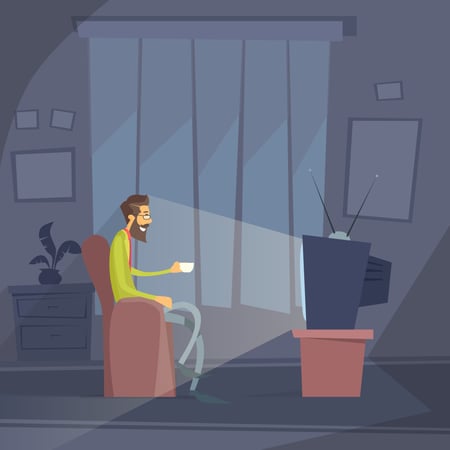 We've all been this guy in the picture. And why not? He looks like he's having a great time. But he might have trouble sleeping later. Why?
We've all been this guy in the picture. And why not? He looks like he's having a great time. But he might have trouble sleeping later. Why?
He's drinking coffee in the evening. Unless it's decaf, he's bound to catch an insomnia-provoking java buzz.
He's watching a brightly lit television in a dark room. The blue spectrum light beaming from its screen is going to shut down melatonin production in his brain, leading to problems falling asleep.
He's also watching a stimulating program on TV. Sometimes the content of television programming can keep us up at night because of its emotional charge or exhilarating subject matter.
We need to remember that our sleep troubles are often made worse when we don't practice good sleep hygiene. The good news? We can fix that.
What is sleep hygiene?
From the National Sleep Foundation: "Sleep hygiene is a variety of different practices that are necessary to have normal, quality nighttime sleep and full daytime alertness."
These are habits and behaviors that we mostly have some control over. Many people with sleep problems may contribute to at least some of their sleep issues because they practice poor sleep hygiene.
Bedtime and sleeping habits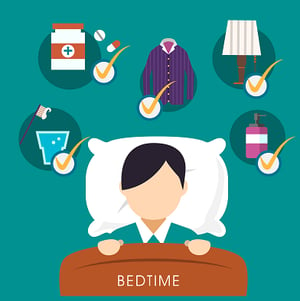
Sleep hygiene best practices always begin with a focus on preparing for sleep at the end of the day. Our nightly rituals are mostly a positive effort toward this end.
For instance, take a look at your bedtime habits. If you routinely:
-
brush your teeth
-
take your medications
-
apply lotion
-
take off makeup
-
drink water
-
say prayers
-
stretch your arms and legs
-
fluff your pillow
-
practice breathing exercises
-
lay out clothes for the next day
-
write in your diary
-
and/or take in some light reading before bed (using filtered light!)
then you are participating in some very good sleep hygiene. Any conceivable pattern of activities that encourages relaxation, reduces stimulation, and dims your exposure to bright light can be considered best practices.
Some pesky bedtime habits
That said...  all of us sometimes partake in some not-so-good rituals, too. Here is a list of problematic behaviors you might wish to rethink for yourself if you struggle to get good sleep at night.
all of us sometimes partake in some not-so-good rituals, too. Here is a list of problematic behaviors you might wish to rethink for yourself if you struggle to get good sleep at night.
Drinking alcohol at bedtime. "Nightcaps" are not the healthy relaxation solution we once thought they were.
Drinking right before bed may help you fall asleep, but when your body metabolizes the alcohol, it goes into withdrawal mode, which affects your endocrine system. This can wake you up.
Also, alcohol can over-relax the tissues in the upper airway, aggravating sleep apnea or causing very loud snoring. Finally, you may be up all night simply to use the restroom, creating yet another interruption to your sleep architecture.
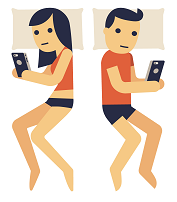 Using smartphones in bed. The blue spectrum light coming from backlit handheld devices of all kinds will interrupt your circadian system, causing delays in sleep.
Using smartphones in bed. The blue spectrum light coming from backlit handheld devices of all kinds will interrupt your circadian system, causing delays in sleep.
Also, just as with the television, content you follow through your devices can be overly stimulating and keep you up at night.
Indulging in midnight snacks. A small, healthy snack to curb a growling stomach in one thing, but getting up to eat a large slab of pizza at 11pm is not going to do you or your sleep any favors.
Your metabolic and digestive systems are also trying to "sleep," and the added meals will tax them, especially if they're high in fat and calories.
This habit can also lead to gastroesophageal reflux disease (GERD), which is a major sleep spoiler.
Sleeping with pets. It depends on the pet, of course, but if yours is noisy, needs a lot of attention throughout the night, or has active movement during sleep that awakens you, then you might need to give Fido or Tabby another bedtime option.
Following an erratic sleep schedule. One of the best things you can do for your sleep health is to go to bed at roughly the same time every single night and rise at roughly the same time every single morning.
Occasional shifts from the schedule are part of normal life, but if you have a 2- or 3-hour difference in rise or wake times every single day and night of the week, you are challenging your circadian system in a way that not only messes with your sleep, but with all of your bodily functions, which are also managed by your circadian rhythms.
Staying in bed too long in th e morning. Once you're awake, you need to get out of bed. Why?
e morning. Once you're awake, you need to get out of bed. Why?
Your brain is primed to receive exposure to bright light, which helps keep your sleep-wake cycles stable.
Meanwhile, your body has stopped producing melatonin, but has started producing cortisol, a wake-promoting agent that wants you to move around to energize your metabolism.
Activity in the morning, which should include meals (to "break the fast") are healthy to your overall system. Hanging out in horizontal mode while awake in the morning prevents your rhythms from getting the jump-start they need.
Your sleeping environment
The place where you sleep must be comfortable and conducive to sleep. That means a lot of sensory details must be tended to, as well as preventive measures to make sure the 8 hours you spend there every night are the healthiest you can make them.
-
Your mattress and pillows need to be supportive and comfortable.
-
You should have layers of clean bedding that can be adjusted easily for comfort.
-
The room temperature is critical. Your body sleeps best in a coole
 r room; add layers of blankets if this helps you tolerate a cooler space. If it's hot out, use fans, air conditioning, spray mists, or cool showers right before bed.
r room; add layers of blankets if this helps you tolerate a cooler space. If it's hot out, use fans, air conditioning, spray mists, or cool showers right before bed. -
Darkness is a requirement. The darker the better; that could mean installing light-blocking window treatments, wearing an eye mask, or removing your handheld electronic devices completely from your sleeping space.
-
Silence can be golden. So can white or pink noise or the lull of crickets, frogs, or the breeze outside.
Everyone has different sound tolerances; people who live in cities miss the sound of traffic on the street below, for instance, when they visit the country. You need to decide for yourself what amount and type of sound you can sleep with.
Earplugs can be handy if your sleep environment is too noisy (you may have a snoring bed partner or live under an airport flight path). Noise machines and the latest headphones for sleeping may also be solutions.
-
A clean sleeping space is a healthy sleeping space. Vacuuming
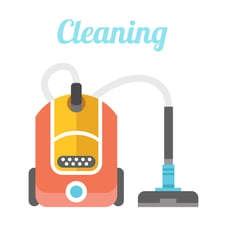 and dusting to keep down dust and other microorganisms should not be an afterthought, especially if you do not have good air circulation in your bedroom.
and dusting to keep down dust and other microorganisms should not be an afterthought, especially if you do not have good air circulation in your bedroom.If you have allergies or asthma, using hypoallergenic products can cut down on the irritants that may compromise your sleeping space. Also make sure you keep using your prescribed medications; they are there to help you breathe better even during sleep.
Keep dirty clothes and dishes picked up and removed from your sleeping space as they harbor bacteria and odors which can also have a negative impact on the air quality in your room. This is especially true during the seasons when you can't safely air out your sleeping space.
Why does sleep hygiene matter?
It matters because, in most cases, consciously practicing good sleep hygiene is inexpensive, easy to do, and can greatly improve the quality and quantity of sleep you get every night. Even if you have challenging sleep disorders like sleep apnea, restless leg syndrome, or REM behavior disorder, your willingness to observe best practices in sleep hygiene will result in some relief.
Does sleep hygiene work?
Yes. It's not an instant fix and could take a while before benefits appear. But it's much easier to fix bad sleep habits than it is to start a new diet or exercise regimen. If you are tired all the time, you may just need a quick sleep hygiene reset.
Let's say you have a terrible sleep schedule: you go to bed at 9pm one night, 1130pm the next night, 3am the next night, 1am after that... and then you decide to stick with a 1030pm bedtime. You're likely to discover, just after a week or two, that you are getting up more easily in the morning (as long as you are getting 8 hours of sleep), and you aren't feeling as sleeping or tired during the day.
The same can be said about cutting back on caffeine products after 3pm every day or turning off your smartphone an hour before bed. Simple solutions really can make a difference.
If you have questions about your sleep hygiene practices, a sleep specialist or durable medical equipment provider can easily find answers and offer other solutions that can work for you.
Sources
Alaska Sleep Education Center
National Sleep Foundation


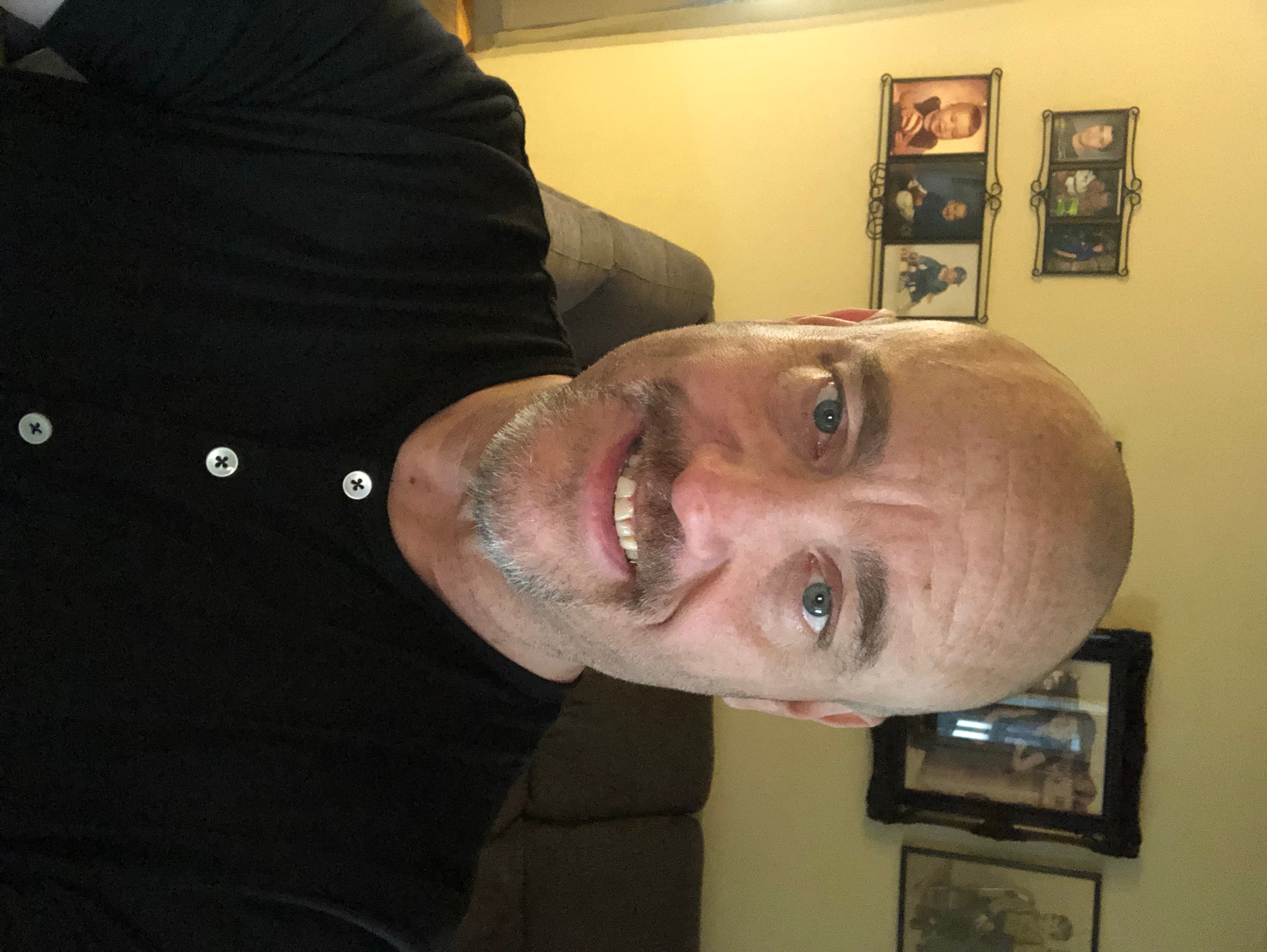
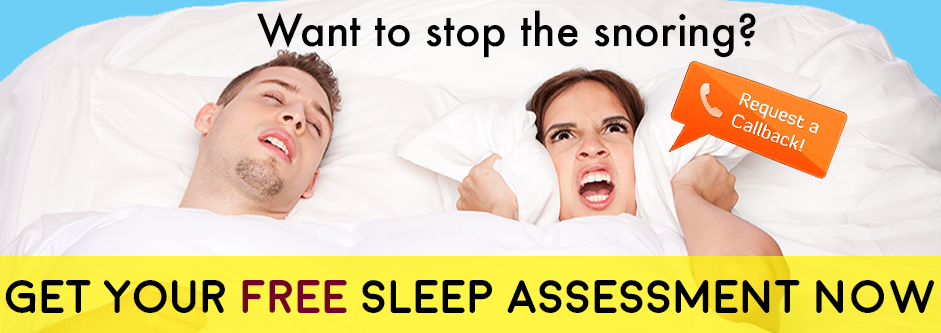


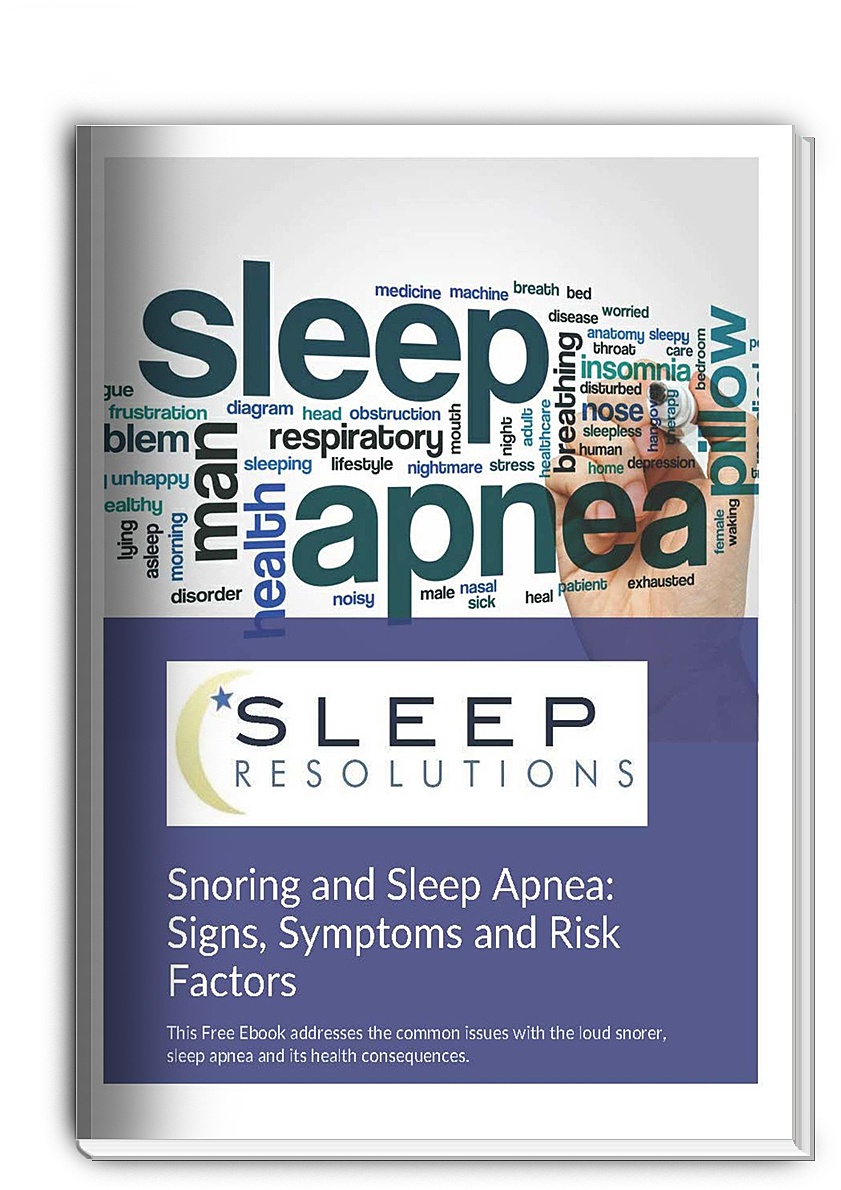

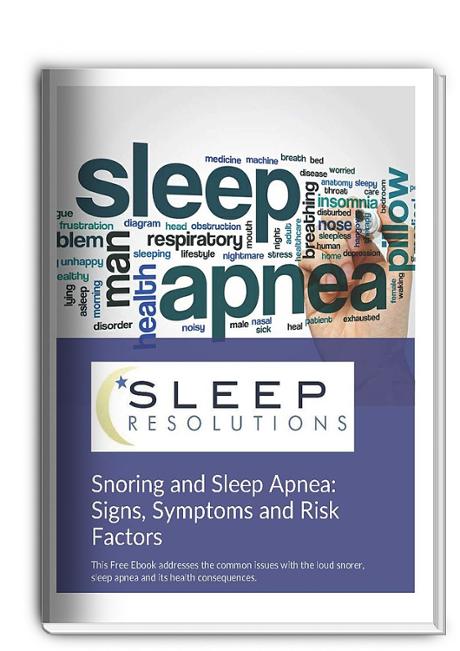

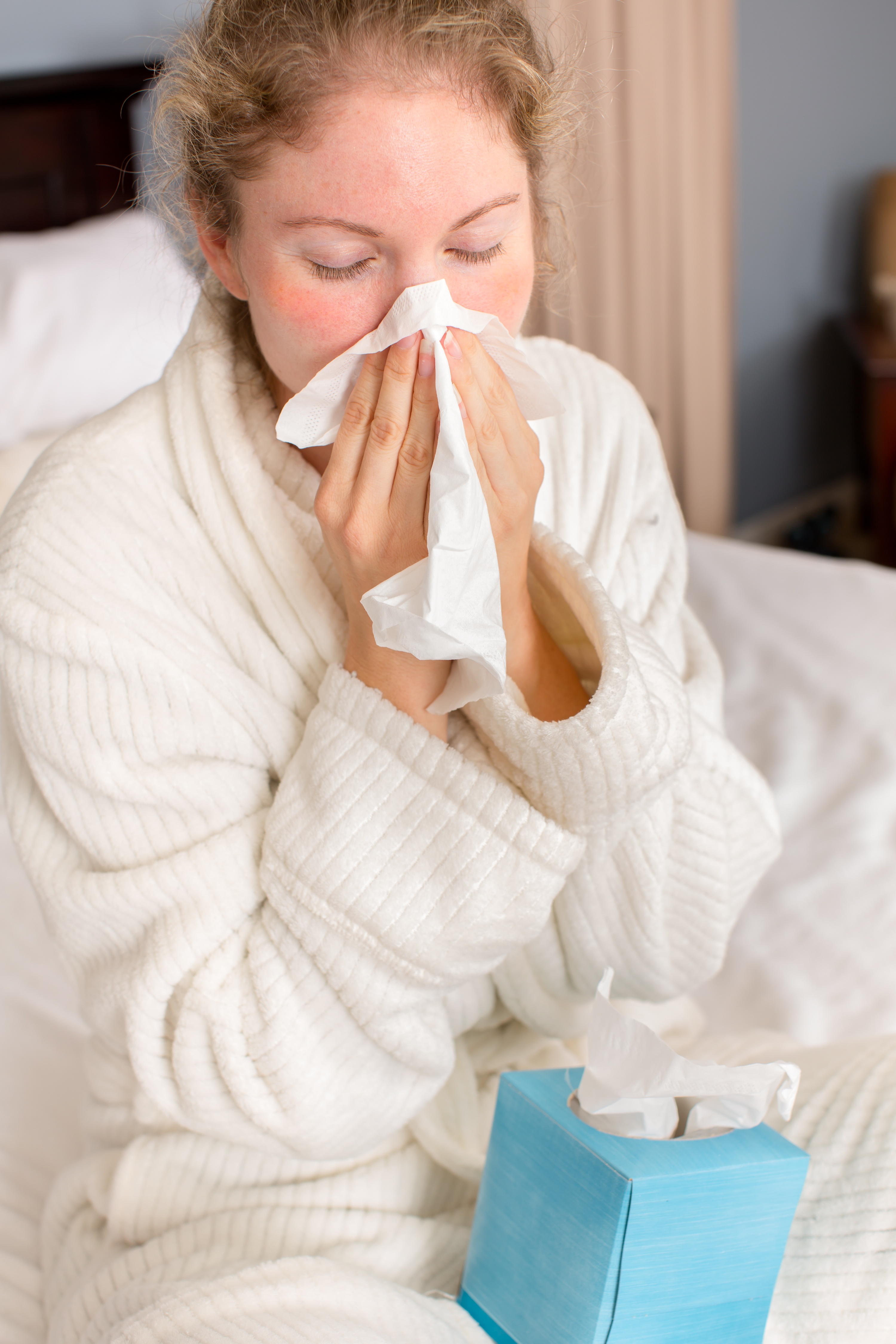

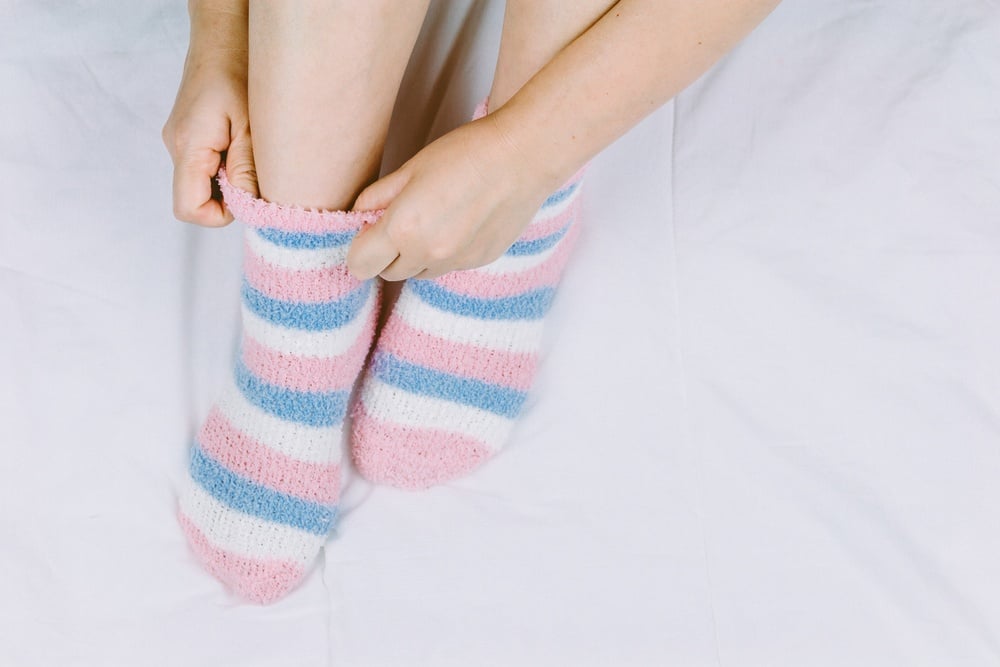
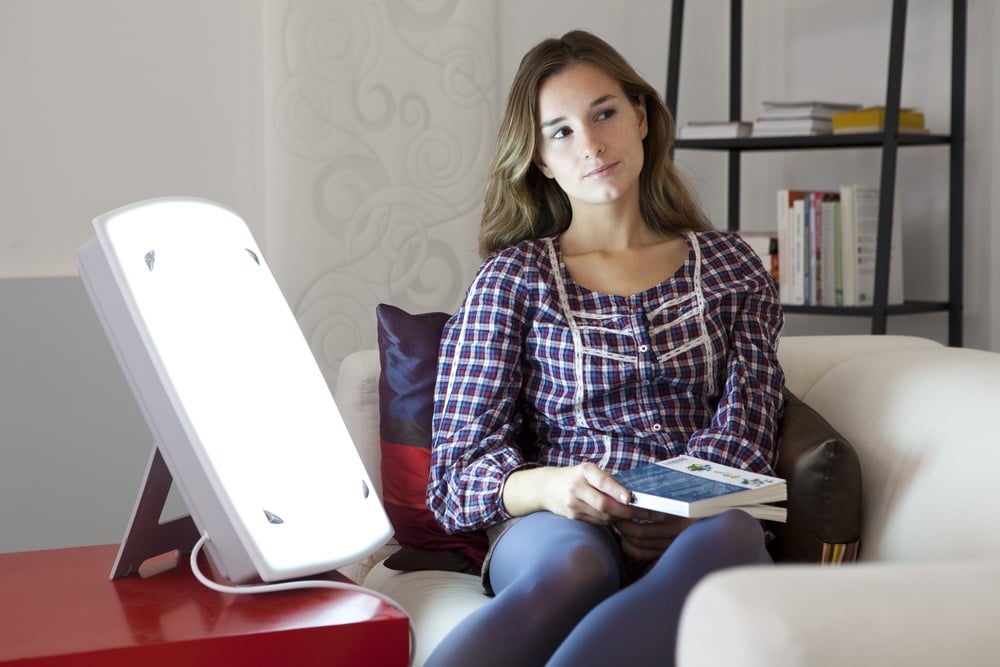
Leave a comment